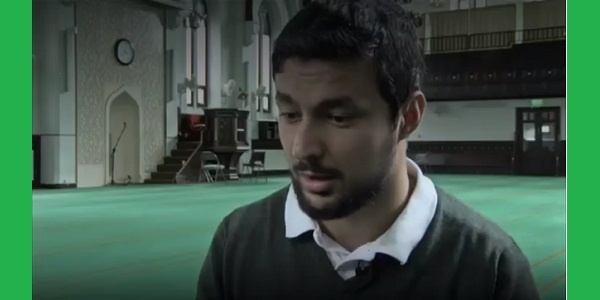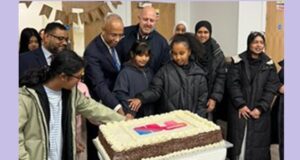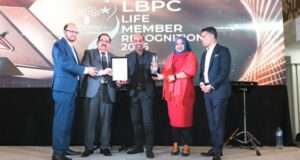THE BBC WAS FILMING Mohamed Fadiel, who lives in Manchester but is of Libyan heritage, outside Didsbury Mosque in Manchester. So when a passer-by stopped to tell Mohamed that Muslims should do more to control their communities, he was caught on camera. The man is clearly in shock – angry and afraid, and we have to see his words through that filter.
Shortly afterwards, inside the Mosque, Mohamed spoke out. “What Salman did,” he told the BBC, “he did it by himself, and his actions will only represent himself. We’re the most affected community by extremism In many parts of the world we fight extremism. We have lost too many lives in Iraq and Libya, and other parts, fighting ISIS and this sick ideology. I think the fear is that the Libyan community is going to be painted in a very negative way, which doesn’t represent the reality.”
The BBC video also showed Fawzi Haffar, a Trustee of the Didsbury Mosque, appealing to the community to let the police have any information they have about Salman Abedi – without delay. The BBC also reported that although Salman Abedi had prayed at the Mosque, he did not attend regularly and was not well known. The video can be seen on:
http://www.bbc.co.uk/news/av/uk-40039366/manchester-mosque-attacker-not-one-of-us
The anger shown by the passer-by at the beginning of the film was understandable, but where did it come from? Yes, part of it is just a reflection of the prevailing propaganda in UK society – a part deliberate and part unconscious colonialism, racism and Islamophobia. Another part of it, though, is fear of the unknown. You don’t mouth off like this to your friends and neighbours: this is how you speak to people you don’t know.
During the coming weeks, the Muslim community has to reach out to its neighbours, with Mosque Open Days and inviting local non-Muslims to Iftar, etc. The Muslim community has to be involved with the wider community too, taking part in civic life.
And when Muslims offer the hand of friendship, the non-Muslim community has to respond – and even take the initiative. Why are Muslim people not joining in your TRA or community group or the chat by open front doors that is still a feature of life on many East End estates? Do Muslims feel welcome? Does your group seek out not just a token Muslim representative, but does it go the extra mile to listen to the issues Muslim people have about the community group, the school, the doctor’s or the estate?
Getting to know each other is a two way process. And when we have crushed the fear of the unknown, then when two strangers meet outside a Mosque on the morning after a tragedy, we won’t see one blaming the other. Instead, they will fall into each others’ arms and weep together at the horror that frightens us all.
[Adverts]
 East London News A Force for the community…
East London News A Force for the community…




